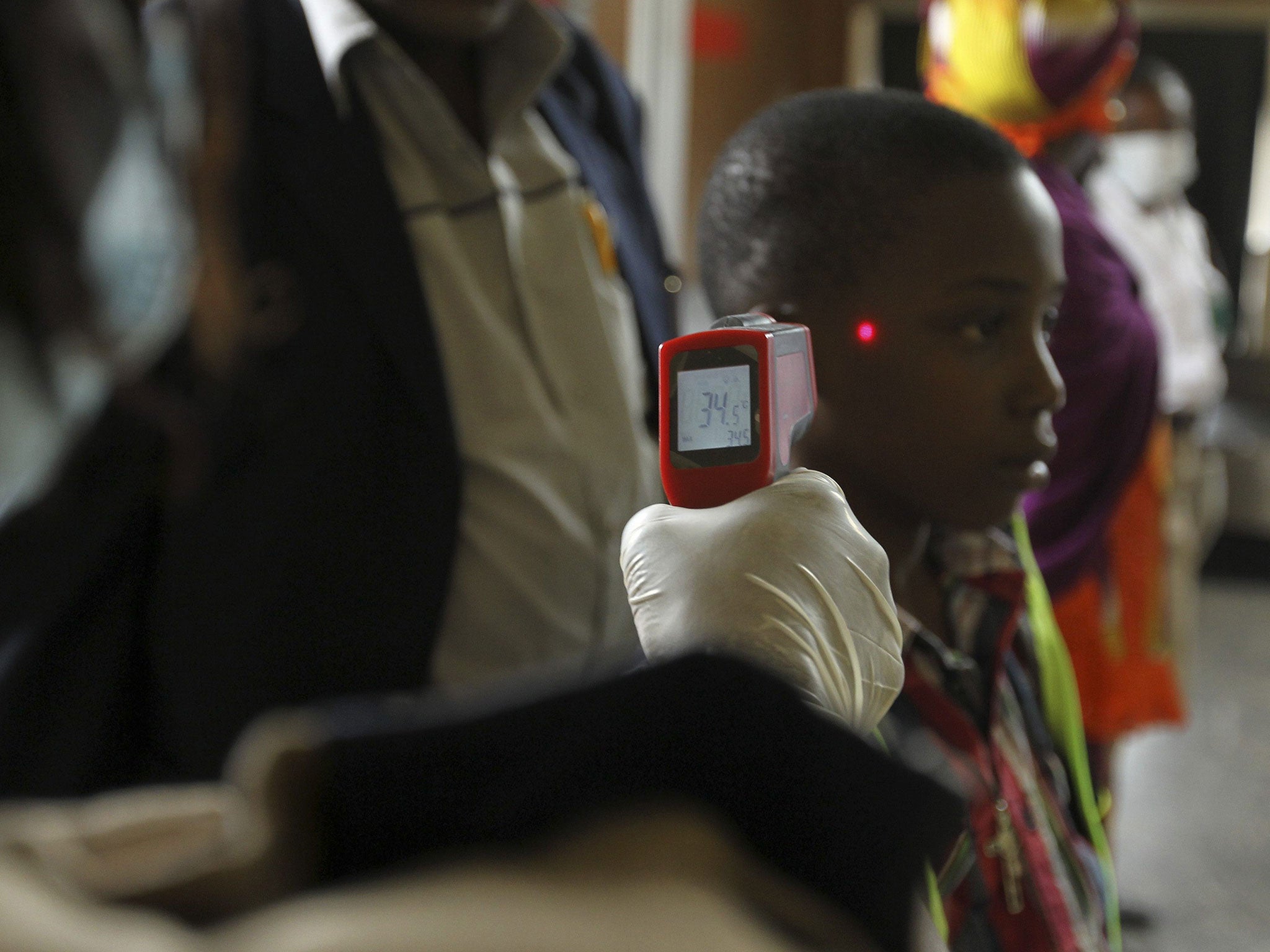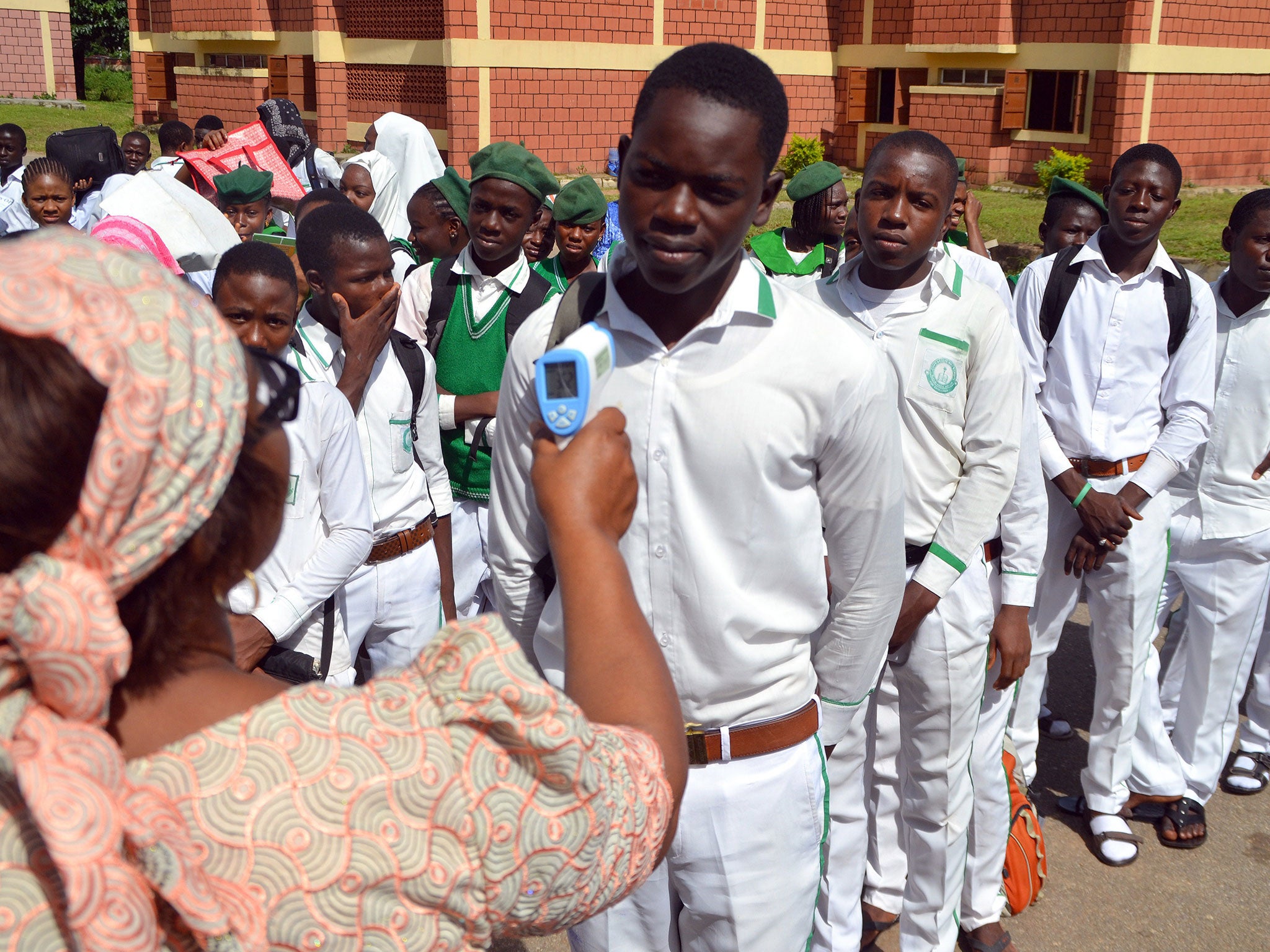Ebola crisis: Nigeria declared Ebola-free three days after Senegal beats virus
Both countries were commended for their quick response to the disease

Your support helps us to tell the story
From reproductive rights to climate change to Big Tech, The Independent is on the ground when the story is developing. Whether it's investigating the financials of Elon Musk's pro-Trump PAC or producing our latest documentary, 'The A Word', which shines a light on the American women fighting for reproductive rights, we know how important it is to parse out the facts from the messaging.
At such a critical moment in US history, we need reporters on the ground. Your donation allows us to keep sending journalists to speak to both sides of the story.
The Independent is trusted by Americans across the entire political spectrum. And unlike many other quality news outlets, we choose not to lock Americans out of our reporting and analysis with paywalls. We believe quality journalism should be available to everyone, paid for by those who can afford it.
Your support makes all the difference.Nigeria has been officially declared Ebola-free today after containing the disease that has killed more than 4,500 people.
Africa’s most populous country, with more than 170 million people, has seen eight people die out of the 20 infected.
But there have been no new cases confirmed since 8 September, meaning Nigeria has passed the 42-day period needed by the World Health Organisation (WHO) to confirm it has quashed its Ebola outbreak.
The agency's country director, Rui Gama Vaz, called it a "spectacular success story".
"The outbreak in Nigeria has been contained," he told a news conference in the capital, Abuja. "But we must be clear that we only won a battle. The war will only end when West Africa is also declared free of Ebola."
The conditions seemed ripe for it to spread through the densely-populated city of 21 million people and beyond, through the workers travelling in and out of Lagos every day and international travellers flying from its airport around the world.
But Nigeria was ready – Ebola had already killed more than 400 people and was spreading through Sierra Leone, Guinea and Liberia.
Knowing the potential of Mr Sawyer’s symptoms, the clinic caring for him refused to let him leave despite alleged pressure from the Liberian ambassador.
Staff at the First Consultants Medical Centre paid a high price for their courage – 11 workers and their family members contracted Ebola and four died.
Dr Benjamin Ohiaeri, the director of the clinic, told a Nigerian newspaper two doctors with a combined 37 years of service were killed, as well as a nurse who was raising her four children alone after her husband died.
The fourth staff member had started working at the clinic on the day Mr Sawyer was brought in. She was two months pregnant at the time.

As the clinic battled to treat Mr Sawyer, who later died, and its own staff, Nigerian authorities started tracing anyone who had contact with the Ebola patients.
An emergency presidential decree enabled officials to access mobile phone records and use law enforcement agencies where necessary to track down people at risk.
Almost 900 people - 362 in Lagos and 529 in Port Harcourt – were traced and monitored for symptoms for 21 days to ensure they had not contracted Ebola.
Nigeria’s Port Health Services worked with airlines to ensure outbreak notifications were made and the Ministry of Health activated an Ebola Incident Management Centre to lead the national response.
The Lagos state government, federal institutions, the private sector and global non-governmental organisations were all drawn in to control the outbreak and the operation has now proved to have been a success.
WHO’s declaration that transmission of Ebola had stopped in Nigeria came three days after Senegal, which recorded just one case, passed the same benchmark.
The infected man entered the country on 29 August after travelling to Dakar from Guinea – one of the worst-affected countries.
WHO commended the Government’s response for quickly identifying 74 of the patient’s close contacts and monitoring them for symptoms. The man later recovered.
“While the outbreak is now officially over, Senegal’s geographical position makes the country vulnerable to additional imported cases of Ebola virus disease,” a spokesperson for WHO said.
“It continues to remain vigilant for any suspected cases by strict compliance with WHO guidelines.”
Join our commenting forum
Join thought-provoking conversations, follow other Independent readers and see their replies
0Comments